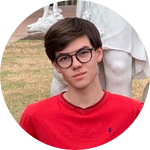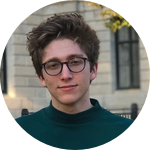About This Project
Mosquito habitat expansion has allowed for their reintroduction in the South. There is an increasing rate of insecticide-resistant populations, largely due to genetic and environmental adaptations. The goal of this project is to go to unserviced field sites and set field traps in each site. The mosquitoes collected will be characterized at local mosquito control offices. From our samples, I will produce a report stating the gender and species of the mosquitoes.
Ask the Scientists
Join The DiscussionWhat is the context of this research?
The South Carolina coastline is a complex ecologic region that has well documented Aedes albopictus and Aedes aegypti mosquito populations. This diverse coastal environment has recently seen an increase in mosquito populations due to environmental change from multiple weather events. It also hosts major population centers and an active international transportation hub that welcome potentially arboviral-exposed tourists and Aedes-infected mosquitos via cargo. Beaufort and Charleston county mosquito control departments capture hundreds of Aedes spp. mosquitos annually from various geographic regions but have limited physical, financial, and technical capacity to test for insecticide resistance.
What is the significance of this project?
Mosquito-borne diseases are a global concern that impact human health, tourism, and natural disaster recovery efforts. Aedes spp. mosquitoes are the primary vector for Zika, dengue, and chikungunya viruses, which infect nearly 400 million people annually and can cause permanent neurologic impairment and death. Until the early 2000’s, Aedes spp. mosquitoes were considered a largely eradicated species in the southern United States. As a result of their reintroduction, we now have documented local transmission of all three arboviruses in the United States. Since preventative vaccines or effective therapeutics are non-existent for these arboviruses, mosquito control is the only method currently available to combat infections.
What are the goals of the project?
The goal of this project is to travel to unserviced sites and trap mosquitoes at all of our sites. Starting June 3rd, I will set 20 traps (10 BG sentinel and 10 Gravid) in Charleston and Beaufort counties' unserviced areas. Traps will be set during dusk and collected at dawn. I will take the samples to the respective county mosquito control labs, where I will sort and identify mosquitoes. We will work with collaborator Dr. DeGennaro to analyze the insecticide resistance and population genetics of our samples. I will take count of each species and gender using EpiInfo. Dead females will be shipped to Dr. DeGennaro's laboratory for genetic testing.
Budget
We anticipate the project to take 120 hours to complete over the summer. I will set out traps and collect them twice a week, which will take 4 hours. I will spend 5 hours a week identifying collected mosquito species. We have also aliquoted 1 hour a week for administrative duties, including participating in local mosquito control meetings, meeting with mentors, planning activities, etc. Our collaborator from FIU will provide mosquito traps. Local mosquito control offices will provide cool tables and microscopes for identification. We will purchase dry ice for the mosquito traps (n=24 trap nights) and have budgeted $300 for this. A mosquito sorting toolkit, comprising of specialized forceps, tweezers, and suction cups, is needed. This toolkit costs about $130 dollars plus tax. The chance to present my work at ASTMH will greatly impact my early career trajectory and allow me the opportunity to network with peers and learn about novel research opportunities post-graduation.
Endorsed by
 Project Timeline
Project Timeline
Starting on June 1st, I will spend a week at both study sites with my advisors learning how to properly trap and collect mosquitoes and identify the species. My advisor Dr. Nolan will meet with me weekly to discuss the progress of the project. Trapping will end on August 23rd and a report will be prepared and shared with backers.
Apr 15, 2019
Discussed project logistics
May 23, 2019
Project Launched
Jun 01, 2019
Travel to study sites for training and collection techniques
Aug 23, 2019
Trapping ends
Nov 20, 2019
I will attend the American Society of Tropical Medicine and Hygiene’s annual conference in Washington, DC.
Meet the Team
Team Bio
Coming together in late 2018 and early 2019, Dr. Nolan is a researcher with expertise on the epidemiology of Chagas disease and remote modeling applications for mosquitoes. Dr. DeGennaro is a neurogeneticist with an extensive background on the effects of genetics on mosquito behavior and insecticide resistance. Kyndall Dye-Braumuller, M.S., is a PhD student with work and academic experience in entomology who will oversee daily logistics and work closely on weekly collections.
McKenzi Norris
I am a Master of Science in Epidemiology student at the University of Washington interested in the the role of the environment on the emergence of infectious vector-borne diseases and their epidemiologies.
Project Backers
- 13Backers
- 100%Funded
- $2,001Total Donations
- $83.58Average Donation

